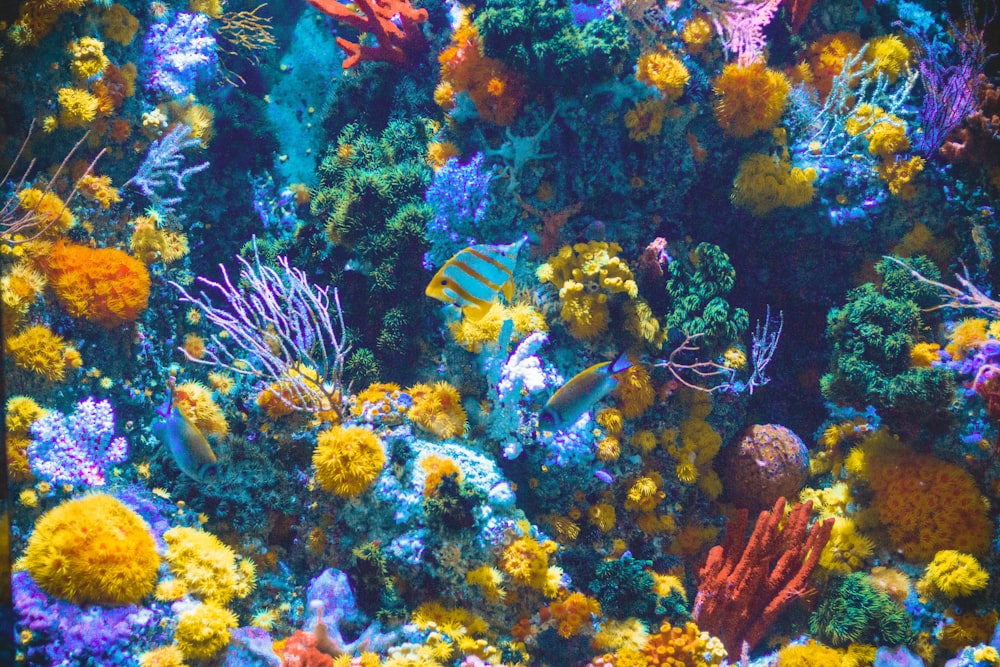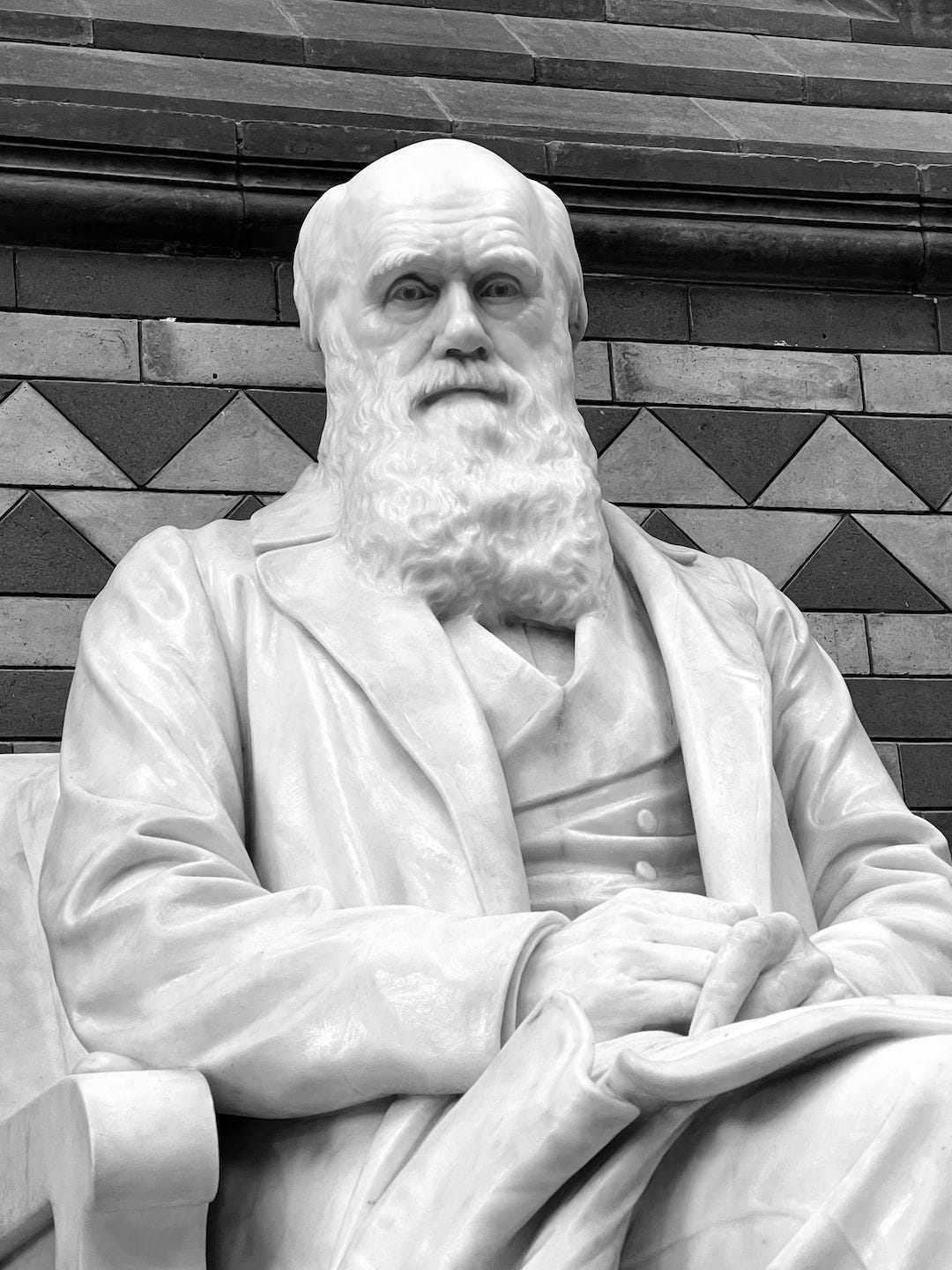The Trouble with "Evonomics"
Evolutionary theorists once made fun of Intelligent Design, that is, until they started dabbling in economics. Strange then that they would call this practice Evonomics.
The curious task of economics is to demonstrate to men how little they really know about what they imagine they can design. —F. A. Hayek
One would think that a full appreciation of evolution and emergence in the context of modern economics would be enough to mute the temptations of High Modernism—James C. Scott’s term for the ideology of the administrative state. We’ve already discussed the problem of the “machine metaphor.” But there's a new way to smuggle technocratic aspirations in the back door.
Enter "Evonomics."
The term was popularized by evolutionary biologist David Sloan Wilson who thinks that the original idea of the invisible hand is "old and erroneous" and should be replaced. He suggests a new version:
The new version is based on examples of the invisible hand that exist in nature, such as cells that benefit multi-cellular organisms and social insects that benefit their colonies. These lower-level units don't have the welfare of the higher-level units in mind. They don't even have minds in the human sense of the word. Instead, according to Wilson, they exhibit behaviors that have been winnowed by higher-level selection to benefit the common good. Higher-level selection is the new invisible hand.
Remember, nowhere in Wilson's discussion of ants and bees does he suggest that nature's higher-level selection is the product of intelligent design. Nor at any point does he ascribe a mental life or agency to these creatures. Instead, he sets forth a theory of group or "multi-level" selection. Then he concludes:
We must learn to function in two capacities: 1) As designers of social and economic systems; and 2) as participants in the systems that we design. As participants, we need not have the welfare of the whole system in mind, in classic invisible hand fashion. But as designers, we must. The invisible hand must be constructed...
The bizarreness of such claims, like Wilson's preferred theory of selection, is multi-level.
First, we should note that relatively few evolutionary biologists believe in multi-level selection. That doesn't mean Wilson is wrong, of course. It's worth noting because Wilson appeals to one controversial theory to derive another controversial theory. But that’s just a red flag. The vaguely plausible idea of group selection is that whole species benefit from certain behaviors. Wilson thinks these behaviors could have evolved at the level of the entire group rather than at the individual level. One source of trouble for group selection theory is that the group-level phenomena Wilson points to can be explained entirely by orthodox Darwinism. Again, this doesn't necessarily mean group selection is wrong, but Ockham has opened the barbershop.
Second, the analogy here seems to be that because group selection is needed to explain behaviors that benefit the whole species, humans ought to develop altruistic supersystems that benefit the entire species. Wilson's "new invisible hand" is short on details. Still, he claims that enlightened "designers" will be able to architect socio-economic systems better than all this experimentation—the crude business of truck, barter, and exchange. But just as we can explain group traits through individual selection, we can also show that the common good can and does arise through individuals' self-interest.
The great economic journalist Frederic Bastiat did just that when, 175 years ago, he asked rhetorically: "How does Paris get fed?" Even if you're not a Francophile, you might consider people eating beneficial to the species. Never mind that the guy who originally coined the term "invisible hand" wrote another book, The Theory of Moral Sentiments. Such leaves plenty of room for acts of altruism among consenting adults. The Discovery Instit—I mean Evonomics supporters—want to dress interventionism up in fancy new plumage.
Third, Wilson's approach seems like another deus ex machina theory. When applied to biological diversity, arguments for Intelligent Design closely parallel arguments for High Modernism applied to economic theory. Wilson is willing to unleash the High Minds in the latter domain and not the former, even though neither is immune to Darwin's dangerous idea. If Daniel Dennett is correct in saying that natural selection is "the best idea that anyone ever had," the idea of the invisible hand can't be far behind.
We don't need species-level selection any more than we need society-level designers. With the right protocols, the extended order emerges.
“Welfare” is subjective and contextual. And that might be the biggest problem with Evonomics.
None of our responses to Evonomics means people can't or shouldn't experiment locally, that altruism can't be “effective,” or that new institutional forms can't evolve. But experimentation is just agentic mutation. Ostrom's managed commons and mutual aid organizations emerge just fine in the extended order until High Minds plan them away. The subtitle of Ostrom's seminal Governing the Commons is, after all, "The Evolution of Institutions for Collective Action" (emphasis mine).
Our critique of Evonomics doesn't imply humans are selfish homo economicus androids operating in a world of perfect information. Our critique hinges on the idea that everyone must stop trying to argue from a God's-eye perch that ain't there and resist the conceit that societies can be designed as if anyone has the requisite knowledge to do the designing.
We do have to respond to curious statements like this from entrepreneur Peter Barnes, who, in an interview with Wilson, said: "We need to re-rig our economy as intelligent designers, using a complex systems perspective."
You read that correctly: intelligent designers. I suspect that many things Peter Barnes doesn't like about our economy are the unintended consequences of rigging. Neither Barnes nor Wilson has shown how their re-rigging represents an improvement over all the prior rigging. Until Barnes can tell us how one might "re-rig" the Great Barrier Reef or the Amazon jungle, we should be as suspicious of this whole line as one might be suspicious of the Discovery Institute—with all due respect to George Gilder.
A more up-to-date way to describe the original invisible hand is as follows:
The voluntary exchange of goods and services among individuals leads to a division of labor in which people specialize in what they're relatively better suited to.
Asymmetries of knowledge start to form, which means more and more people have to trade with specialists and become specialists themselves.
Thanks to increasing gains from this exchange, people gravitate to doing the things they are more productive at doing, which is a constant process of decentralized learning and improvement. Whether alone or in teams, people use their lights to judge what they are good at doing in ways central authorities never could.
The resulting prosperity encourages more specialization and more trade. As more producers specialize, they produce more highly specialized things, yielding a diverse cornucopia. Each person might produce fewer things but can consume more things.
People try new things, formulate new recipes, and combine existing ideas to make new ones. Such allows them to specialize and produce. It's called innovation, and it's probably the single most significant driver of prosperity. The more people innovate, specialize, and trade, the more opportunities they have to serve each other better.
The more they serve each other, the higher their living standards. But the decentralized experiments never end.
Readers of this publication understand that the market’s discovery process can and should be applied to governance itself.
Skeptics might argue the original view can't include certain kinds of values. This is an open question. Suffice it to say that the degree to which producers or consumers can displace their costs onto others is the degree to which the Common Law can help. Otherwise, overall abundance might not come uniformly, much less comport with any given person's ideals. But it comes. And it comes in pluralism. (Just as it does in the rainforest.)
Like many under High Modernism’s spell, Wilson thinks there is a "middle way" between decentralized experimentation and central planning. Supposedly, it will give us better results than an economy in which people self-organize in the service of different missions. Odd that Wilson doesn't think we are already living with this middle way, though he is consistently short on details as regards his purportedly novel version of the mixed economy.
The mixed economy has long been a source of confusion and corruption because its adherents assume one can reconcile the different approaches. But they cannot. The systems are incommensurable. (Hint: one operates using persuasion, the other using coercion. It’s no wonder Mussolini loved Keynes.)
Most of us want to see the world improve. Only the most heartless sociopath will delight in the thought that future generations will endure terrible hardship, environmental degradation, or humanity's end. But in our desire to leave our children a world better than the one we found, we must recognize our limitations. Historically, authorities indulged the urge to fix their societies with visible hands.
They left their societies in ruins.





Well parsed and argued, Max, thank you.
You show what I term the duplicity and/or obtuseness of the self-proclaimed “Experts/Elite” who wish to farm Humanity for THEIR Greater Good.
Their self-deception and narcissistic hubris allows them to dress their would be dictatorship in the latest intellectual fads to make it seem benevolent altruism.
Inside their “New Invisible Hand” is the Old Visible Fist of Tyranny.
Get free, stay safe.
This article seems to miss the point that our legacy political-economic systems were historically designed by ideologues with the full intention of usurping locally-produced value and suppressing political feedback (and crushing cultural/ecological diversity to boot). There is nothing "natural" about current economics.
We are fish in a monoculture ocean of one dominant form of horrendously designed money, which is used to inflict great harm on billions of life forms on this planet. We are now at a point in time where the convergence of multiple exponential technologies is opening up space for the emergent, bottom-up experimentation of alternative economic systems that can cooperate & compete against each other for dominance - even Hayek called out the monoculture problem inherent in nation state currencies. As an advocate for stigmergic coordination, I thought this would be something you'd be excited about, but instead your blog reads like a free market libertarian apology.
If you truly believe that there are no collective coordination improvements to be gained through participatory economic systems design using complex systems science and the new tools available to us, then you need to keep digging my friend!